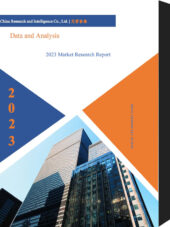Description
Europe self-driving car market
A self-driving car also known as the driverless car or an autonomous car, a robotic car uses a combination of, cameras, radars sensor, GPS system and artificial intelligence (AI) to travel between destinations without the need of any human drivers. To quantify self-driving cars must be able to drive to a predetermined destination without human conduction. It is expected that the self-driving car would reduce car crash by 90%. The Europe self-driving car market is expected to expand at a CAGR of 49.9%, leading to global revenue of USD 38.51 Bn by 2024.
Europe self-driving market self-driving market is further segmented based on applications, automation and technology components. The segment applications are also categorized into personal use and commercial use. Most of the self-driving cars on the road are owned for personal usage. ‘Robo taxi’ i.e. the self-driving taxi is expected to take over the transportation system. It would help to reduce purchasing cost and maintenance cost. It is supposed to encourage share riding concept.
Based on automation, the self-driving automation levels are categorized into semi-autonomous and full autonomous technology. Semi-autonomous cars are dominating the automation segment. Fully autonomous driven vehicles are still a long way to be introduced on the roads. European automakers are working on the manufacturing of semi-automation cars. Companies like Google, Audi and BMW are continuing its autonomous testing to handle safety challenges.
The self-driving Car market segment is based on various technological components that are used in autonomous cars like radar, lidar, automotive vehicle camera, ultrasonic sensor and GPS navigation system. The new car assessment program in Europe encourages the OEMs (original equipment manufacturers) to adopt ADAS (advanced driver assistance system) in all the new cars to promote safety. The European Commission is willing to legalize the use of 79GHZ radar sensor for ADAS applications.
Based on countries, the self-driving car’s market is segmented into EU5 and rest of EU5. The EU5 would secure the highest market share because countries like the U.K. and France are progressing with self-driving cars.
Key growth factors
European countries are following the same trend as that of North America toward driving an autonomous vehicle. The British government has already planned to adopt regulation of driverless technology regulation by summer 2017 and working on amending the international law to cover self-driving technology by 2018.
It is projected that there would be 25% of self-driving car penetration in this region by 2035. The countries would not witness a fully automated vehicle but would drive lots of manual cars with computerized features.
Threats and key players
Factor that may restrain the adoption of self-driving cars is lack of skill, strict data protection regulation set by the European Union.
The key players in the Europe self-driving car market are Apple, Microsoft, IBM, Volvo, Nissan and Bosch.
What’s covered in the report?
1. Overview of the Europe self-driving car market
2. Market drivers and challenges in the Europe self-driving car market
3. Market trends in the Europe self-driving car market
4. Historical, current and forecasted market size data for the Europe self-driving car market
5. Historical, current and forecasted market size data for the applications of cars in Europe self-driving car market (personal use and commercial use)
6. Historical, current and forecasted market size data for the automation level in the Europe self-driving car market (semi-automation and fully-automation)
7. Historical, current and forecasted market size data for the technological components in the Europe self-driving car market (radar sensors, video cameras, lidar sensors, ultrasound sensors, and GPS navigation systems)
8. Historical, current and the forecasted countries (EU5 and rest of EU5) market size data for the Europe self-driving car market
9. Analysis of the competitive landscape and profiles of major companies operating in the market
Why buy?
1. To gain insightful analysis of the entire market and have a comprehensive understanding of the Europe self-driving car market
2. To understand the growth drivers and challenges in the self-driving cars market and its impact on the European scenario
3. To analyze the market potential, drivers, latest market trends, opportunities and challenges, self-driving cars market threats and risks
4. Identify major competitors, market dynamics and respond accordingly
5. Devise market-entry strategies by understanding the factors driving the growth of the market
6. Get stakeholder and technology analysis, profiles of the relevant companies and start-up profiles



